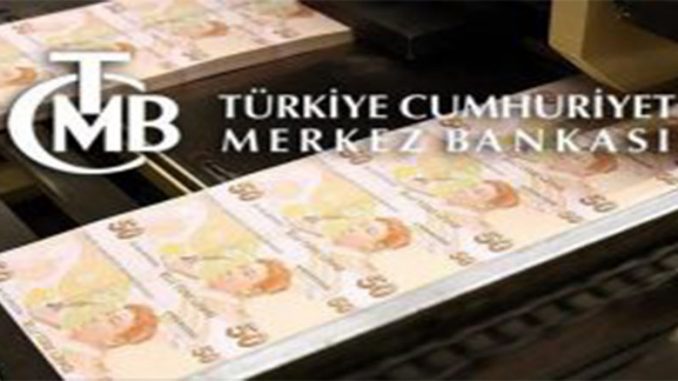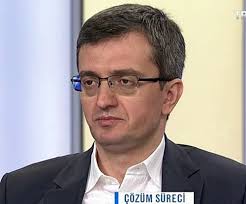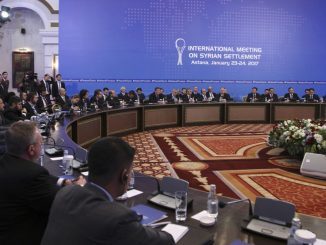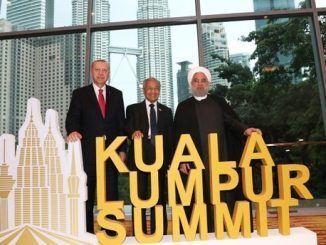
 BY: CEMIL ERTEM*
BY: CEMIL ERTEM*
President Recep Tayyip Erdoğan reiterated Turkey’s theses in his meeting with U.S. President Donald Trump, which is considered to be a ‘historic’ summit. Turkey will not compromise; the thinking is that a country that defends its interests until the end also means that it has a good economic path. However, exactly for this reason, an unfair attack is being carried on the Turkish economy and its institutions nowadays.
One of the most unfairly criticized practices within this framework is the steps taken by the Credit Guarantee Fund (CGF). The second is the new and active monetary policy framework developed by the Central Bank of the Republic of Turkey (CBRT).
For instance, a Far Eastern investment company said in a recently published report, “In addition to this more cyclical concern, we are also worried about the authorities’ ‘insistence’ on sustaining credit flow at the expense of prudent macroeconomic policies, as suggested by the recent plans to allow the CRBT to purchase securitized loans in order to inject liquidity into the banking system.”
This statement is incoherent in all its aspects. First of all, have you heard from the CRBT itself that it has such a plan? It is not possible to have heard that, because the CRBT does not have such a plan. Do not mistake the CRBT for the technically collapsed central banks whose balance sheets are full of bad assets. The CRBT has never had and will not have one in the future.
The CRBT is an independent institution and any comment and view except for its official statements is not its concern. Without knowing this, why mislead people? Don’t you think that this attitude is a kind of fraud? If you mean the CGF’s practices concerning the credit expansion, this occurs with a completely non-public dynamic. The CGF has a very advanced rating system.
In addition, the CGF loans are largely circulated by private banks rather than by public banks. Do you think that a government authority in Turkey can set the amount of credit that banks with foreign partners must provide? Now, organizations that publish such made-up reports are becoming ‘aggravated swindlers’ who first deceive their own investors. However, this does not concern us, but rather the investors who rely on them. We must focus on what political motives push them to publish such shady reports.
To understand this, I advise you look to the 13th International Defense Industry Fair 2017, which was held under the auspices of the Turkish Presidency in Istanbul last week. Hosted by the Ministry of National Defense, the IDEF fair has become a tradition and it witnesses new products that surpass the previous year’s fair in technology. Even this alone shows the power and profundity of the transformation that lies ahead of us. Turkey, closing the gap between itself and developed countries in the defense industry is a historic transformation not only for itself, but also for all emerging economies.
The defense industry does not concern itself with weapons and war alone. This is because what we call the defense industry is a field where humanity protects, shares and manages existing things. As such, development constitutes the basic dynamics of this sector. The communication technologies that we use today, including computers and the internet, are the products of the defense industry which is an innovative area by its very nature. This being the case, social developments in all areas and technology, particularly defense industry technology, stimulate each other.
For instance, as an engineering masterpiece, the composite bow has a significant role in the enlargement of the Ottoman Empire. As it has always been told, the composite bow, together with the cannon ball technology that was used during the Conquest of Istanbul, indicates that the development was not achieved with brute force. However, a strong financial structure and a robust economy, which complement, maintain and fund this, are indispensable. The Ottoman Empire lost its power in the defense industry when it lost its economic and financial balances and submitted them to the West.
It is possible to argue that the defense industry is the essence and the highest level of a society’s overall technological accumulation. It also indicates the future, in that if you have started to close the gap in your defense industry, you can progress unabatedly in this field. So, we can suggest that if Turkey does not take a step back toward the “old,” it will be a major country of the new multiple détente in the world and it will achieve the new industrial revolution.
Despite its major structural problems, the Turkish economy is one of the economies least affected by the global economic crisis. This is mostly because of the steps that we have taken since 2008, infrastructure investments that we have made against all objections
, and the quest for an inclusive growth model that supports the middle class. So, the most important thing now is whether we can determinedly maintain this in the new period.
Against all odds, Turkey will resolutely follow a new, fair, inclusive, market-friendly growth and development path, which will set an example for both the region and the world. It will also rapidly introduce reforms and concomitant institutions that will practice these reforms.
*Cemil Ertem is a Turkish columnist at Daily Sabah Turkish newspaper
(Published in Daily Sabah on Friday, May 19, 2017)



